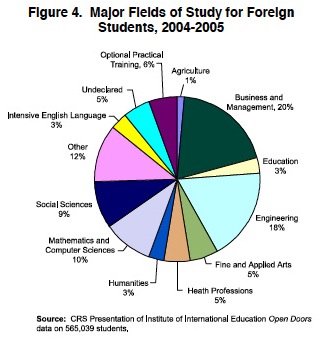The following are the general requirements for an F-1 Visa:
- The student must be enrolled in an "academic" educational program, or a language-training program;
- The school must be approved by SEVIS (U.S. Immigration and Customers Enforcement);
- The student must be enrolled as a full-time student at the institution;
- The student must be proficient in English or be enrolled in courses leading to English proficiency;
- The student must have sufficient funds available for self-support during the entire proposed course of study; and
- The student must maintain a residence abroad which he/she has no intention of giving up.




Recent comments
6 years 2 days ago
15 years 16 weeks ago
15 years 17 weeks ago
15 years 17 weeks ago
15 years 34 weeks ago
15 years 34 weeks ago
15 years 41 weeks ago
16 years 7 weeks ago
16 years 41 weeks ago
16 years 41 weeks ago